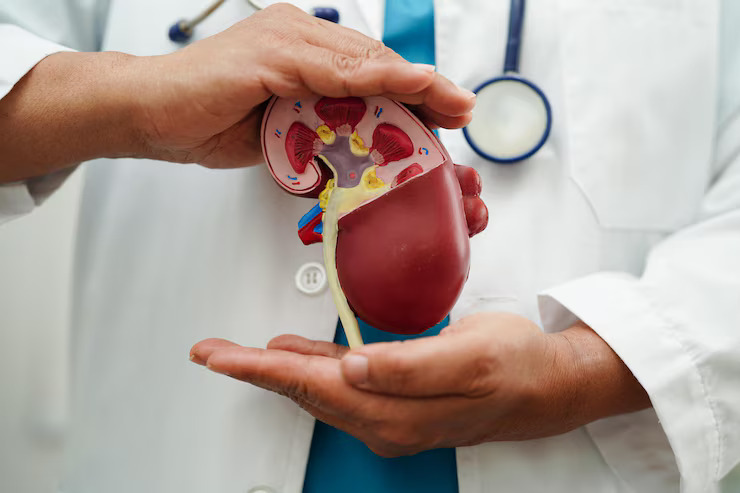
As a parent, your child’s health is always a priority. While your pediatrician can address most health concerns, there are times when specialized care is needed. One such area of specialized medical care is pediatric urology. Understanding when to see a pediatric urologist can help you navigate your child’s health needs more confidently and ensure they receive the right care at the right time.
In this blog, we’ll explain pediatric urology, common conditions that require a urologist’s expertise, and how to know when to schedule that important visit.
What Is Pediatric Urology?
Pediatric urology is a specialized field of medicine that focuses on diagnosing and treating urinary and genital issues in children. Urologists specializing in pediatrics have specific training and experience in managing conditions affecting a child’s kidneys, bladder, urethra, and genital organs. They understand the unique needs of children and how to approach their care with gentleness and expertise.
Pediatric urologists treat many conditions, from common urinary tract infections (UTIs) to more complex congenital (present at birth) abnormalities. They aim to help children maintain healthy urinary and reproductive systems and ensure that issues are managed effectively and with minimal discomfort.
Common Pediatric Urological Conditions
Here are some of the most common reasons children may need to see a pediatric urologist:
Urinary Tract Infections (UTIs)
UTIs are relatively common in children, especially girls. Symptoms include pain or burning during urination, frequent need to go to the bathroom, and fever. While most UTIs are easily treated with antibiotics, recurring infections may indicate an underlying issue with the urinary system. A pediatric urologist can help identify structural abnormalities or functional problems causing recurrent infections.
Bedwetting (Nocturnal Enuresis)
Bedwetting can be a distressing issue for both children and parents. Although it is considered normal for younger children, bedwetting that continues into later childhood might require a consultation with a urologist. A pediatric urologist can assess whether there’s an underlying medical issue, such as a bladder or kidney problem, and suggest treatments or strategies to help manage the situation.
Hydronephrosis
Hydronephrosis occurs when one or both kidneys swell due to urine buildup. It can occur when urine cannot drain properly from the kidney to the bladder. In some cases, it is detected before birth during a prenatal ultrasound. Pediatric urologists are experts in diagnosing the severity of hydronephrosis and determining the best course of action, which may include monitoring or surgical intervention.
Undescended Testicles (Cryptorchidism)
Undescended testicles occur when one or both testicles fail to enter the scrotum before birth. This condition affects about 1 in 100 boys and usually corrects itself within the first few months of life. However, if the testicles do not descend naturally, a pediatric urologist may recommend surgery to move the testicle into the correct position. Timely treatment is important to prevent future complications like fertility issues or an increased risk of testicular cancer.
Hypospadias
Hypospadias is a congenital condition in boys where the opening of the urethra is not located at the tip of the penis but rather on the underside. This condition can vary in severity and may cause problems with urination and, later in life, sexual function. Pediatric urologists are skilled in performing corrective surgery to reposition the urethral opening and ensure normal function.
Vesicoureteral Reflux (VUR)
VUR occurs when urine flows backward from the bladder into the ureters or kidneys, increasing the risk of kidney infections and damage. Children with frequent UTIs or kidney infections may have VUR. A pediatric urologist can perform diagnostic tests and offer treatment options, ranging from medication to surgery, to prevent long-term complications.
Genital Anomalies
Pediatric urologists also treat a range of genital anomalies, including hernias, hydroceles (fluid buildup in the scrotum), and other developmental concerns. These issues may occur at birth and require surgery or monitoring as the child grows.
When Should You See a Pediatric Urologist?
Now that you know some of the most common pediatric urological conditions, let’s discuss when to see a specialist. As a general rule, if your child is experiencing recurring issues with their urinary or genital systems, it may be time to consult a pediatric urologist. Here are some specific signs that warrant a visit:
Recurring UTIs
If your child has had more than two UTIs in a short period, or if they experience pain, blood in their urine, or fevers associated with urination, a pediatric urologist can help determine if there is an underlying problem that needs treatment.
Persistent Bedwetting
While bedwetting is normal up to a certain age, if your child is still wetting the bed after age six or if other symptoms like pain accompany bedwetting during urination, a pediatric urologist can help evaluate the situation.
Unusual Urine Flow
Suppose your child has difficulty urinating, experiences pain, or has an unusual urine stream (such as a narrow or split stream). A urologist can perform tests to identify potential blockages or other issues in that case.
Abnormalities Detected During Pregnancy
Suppose an ultrasound during pregnancy shows any abnormalities in your baby’s urinary or genital system, such as hydronephrosis. In that case, your pediatrician may refer you to a pediatric urologist for a closer evaluation after birth.
Delayed Potty Training
While every child is different, if your child is significantly delayed in potty training or has difficulty controlling their bladder, a pediatric urologist can assess whether there is a medical reason behind the delay.
Swollen Genitals
If your child’s testicles appear swollen or noticeable discomfort in the genital area, a pediatric urologist can check for hernias, hydroceles, or other issues that might need treatment.
Family History of Urological Issues
Suppose there is a family history of urological conditions, such as kidney disease, bladder problems, or genetic disorders that affect the urinary system. In that case, consulting a pediatric urologist for preventative care and monitoring may be helpful.
How to Prepare for Your Child’s Urology Visit
Visiting a pediatric urologist can feel overwhelming, but it doesn’t have to be. To make the experience as smooth as possible, consider these tips: If you’re in Bangalore and need expert care for children’s urology, SSurocare offers the best kids urology treatment in Bangalore, providing solutions for all your urology concerns.
- Write Down Symptoms: Record your child’s symptoms, including when they started and any patterns you’ve noticed.
- Ask Questions: Prepare a list of questions or concerns for the urologist. Don’t be afraid to ask for clarification on anything that seems unclear.
- Explain the Visit to Your Child: Let your child know what to expect in a way that is appropriate for their age. Reassure them that the doctor is there to help.
- Bring Medical Records: If your child has seen other doctors or had previous tests, bring those records to the appointment to give the urologist a complete picture.
Conclusion
Pediatric urology is crucial in managing your child’s urinary and genital health. If your child is experiencing recurring symptoms or has been diagnosed with a condition that affects their urinary system, consulting a pediatric urologist is an important step in ensuring their well-being. Trust your instincts as a parent, and don’t hesitate to seek specialized care when needed your child’s health is worth it!







